Chow Chows make great dogs for the right households! They’re adorable, fairly low energy for their size, and were bred to guard. However, there are also many common complaints about Chow Chows that their people share.
Common complaints about Chow Chows include that they’re stubborn, bark too much, and sometimes guard inappropriately. Many Chows don’t get along with other dogs. They also shed heavily and need to be brushed multiple times a week.
In this article, we’ll discuss all of the downsides to caring for a Chow Chow so that you know what to expect before you adopt this breed.
#1: Chow Chows are Independent Dogs
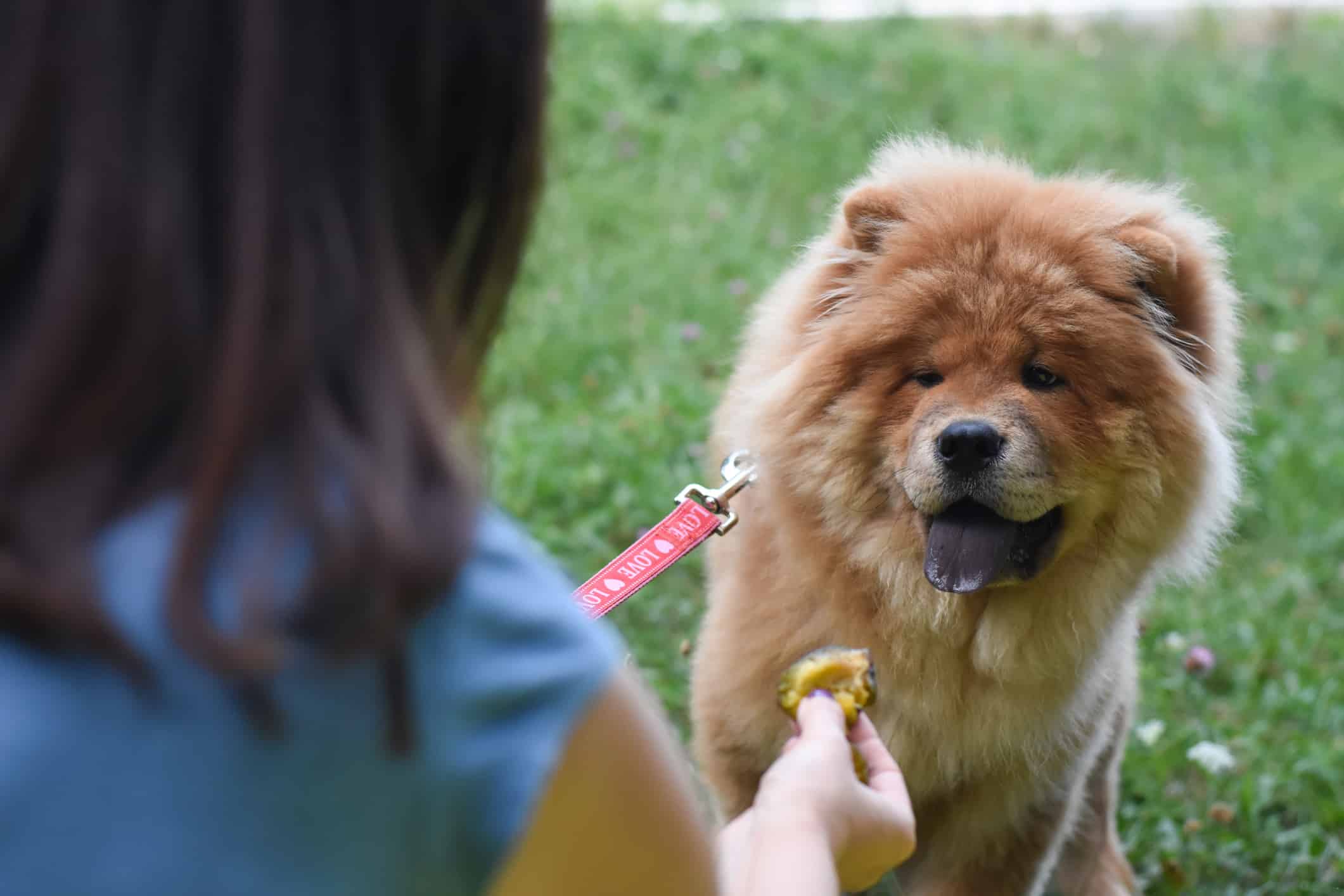
It takes extra patience to train a Chow Chow, as they can be stubborn.
©iStock.com/Ivan Marjanovic
Chow Chows tend to have a mind of their own, and won’t always listen the first time you ask something–or the fifth! It’s important to keep them engaged in training by making the experience fun and positive.
Keep training sessions short but frequent, bring your tastiest treats, and end on a high note whenever possible.
Remember that when you say “no” to a dog, it needs to be paired with a “yes!” For instance, redirect them to chew toys instead of letting them bite hands or teach them to sit in their bed rather than run out the front door.
#2: They May Bark Excessively
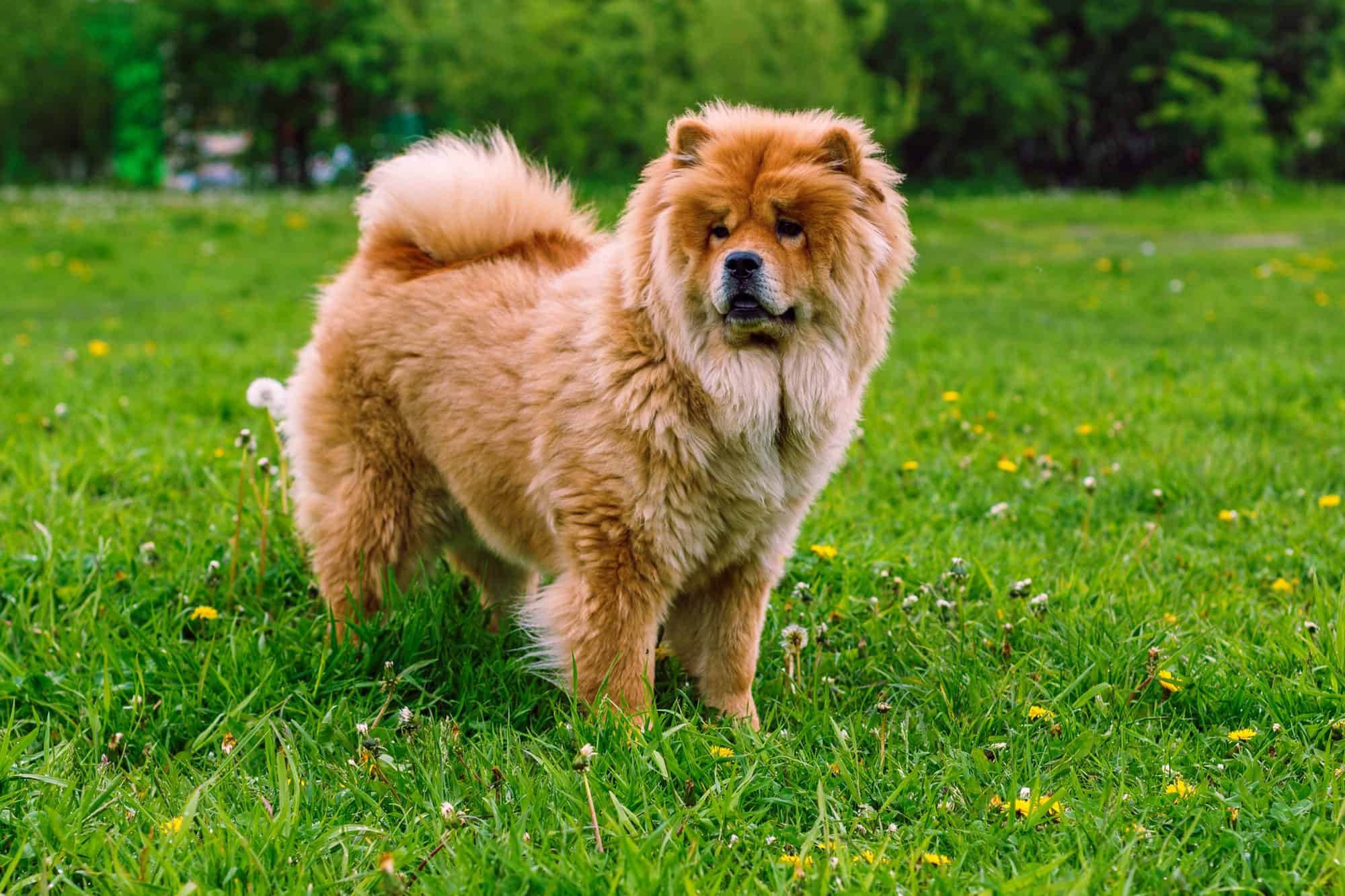
Chow Chows are always alert to their surroundings.
©Flower_Garden/Shutterstock.com
These dogs are often alert to threats in the area, whether real or perceived, and will act accordingly. This means a lot of barking!
You can teach your Chow Chow to only bark to alert, rather than carrying on, but this takes time, consistency, and patience.
#3: They’re Territorial
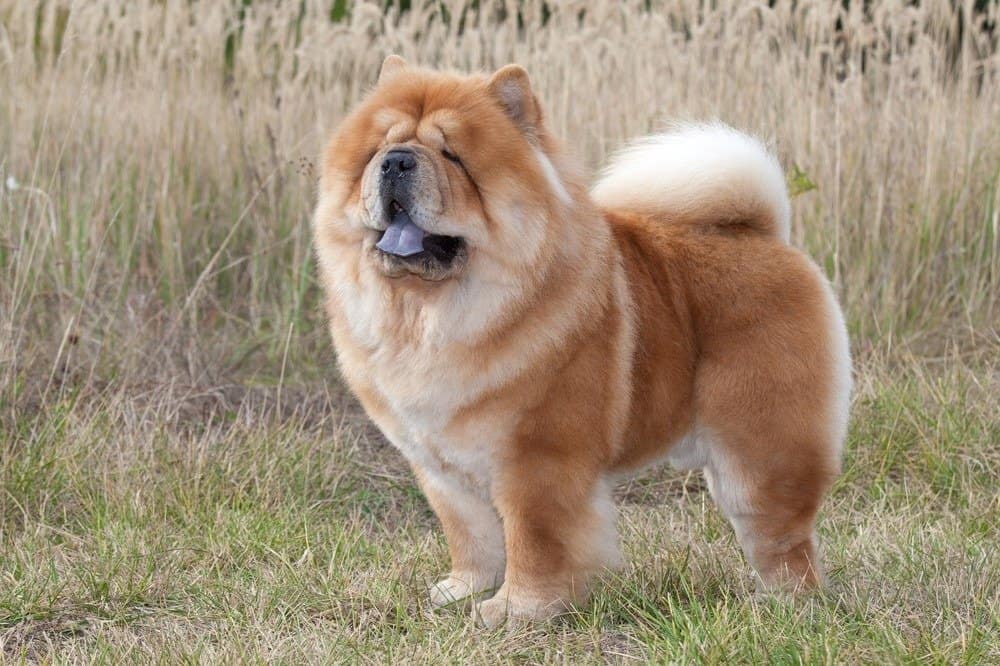
Many Chow Chows are wary of strangers.
©VKarlov/Shutterstock.com
Chow Chows often don’t like others, especially strangers, near their things, their home, or their family. It’s important to socialize them young so that they learn that not all strangers present a threat.
To prevent resource guarding, never take things from your dog. Offer trades, such as a tasty treat for their toy. Give the toy back so that they don’t learn you’ll take their things away for good–this makes them more likely to give things up when you do need to take them away permanently.
Teach “leave it” and “drop it” cues while they’re young and practice so that they’re reliable. Stay away from your dog’s food and their face while they eat, and ensure that other family members do as well, especially children and other pets.
If your Chow Chow shows aggression, work with a force-free trainer who specializes in aggression cases. Never use aversive training methods or tools, as these methods cause fear and typically worsen aggression.
#4: Some Chow Chows are Dog Aggressive
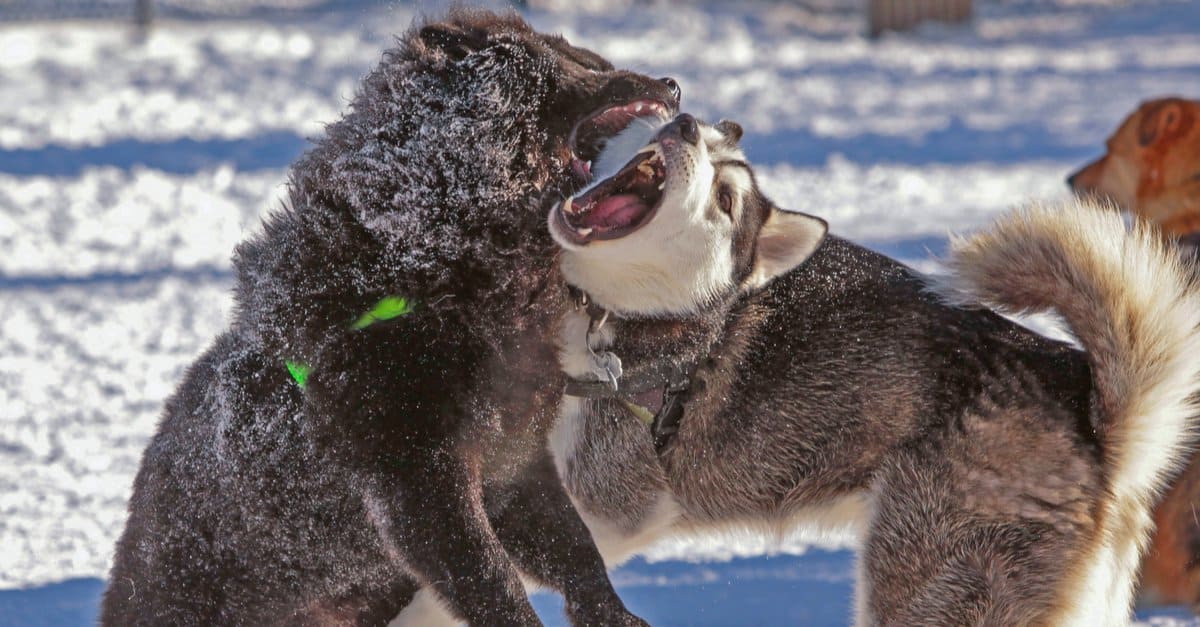
Not all Chow Chows will get along with other dogs.
©Firefighter Montreal/Shutterstock.com
If you’re looking for a puppy to be best friends with your resident dog, you may want to rethink adopting a Chow Chow–or be very careful how you go about it. An older rescue Chow who is already good with other dogs is your best bet.
It’s not that Chow Chows never get along with other dogs! But, they do have an increased risk of showing dog aggression or selectiveness.
You must know how to manage these behaviors before adopting your Chow Chow. They cannot be allowed to get loose and hurt other dogs. Aggressive dogs should never visit dog parks and should only be allowed around others with careful introductions and monitoring by people who know dog body language well.
#5: Chow Chows do Best in Cool Climates
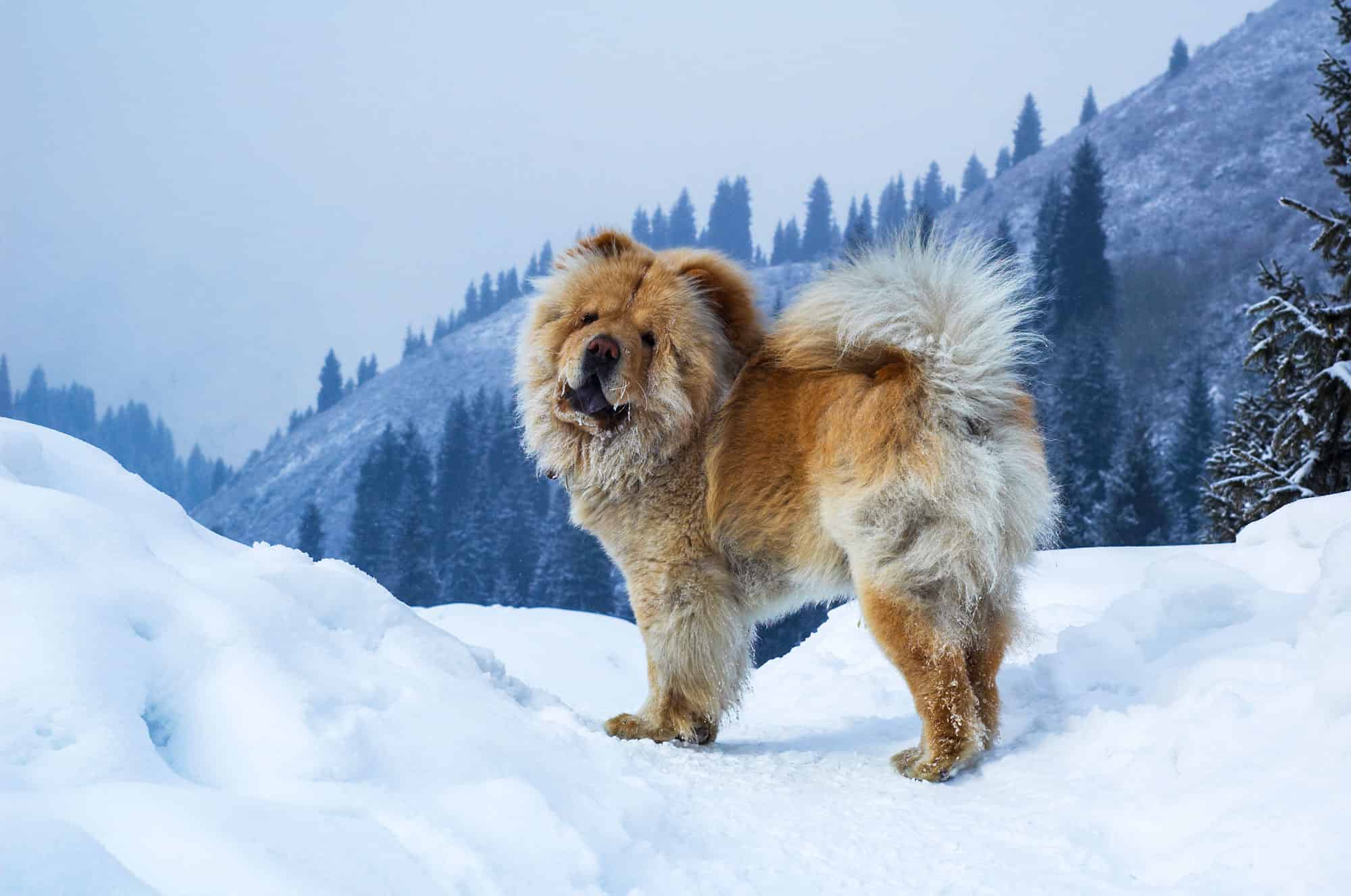
Most Chow Chows will love playing outside in the winter.
©Maxim Petrichuk/Shutterstock.com
For thousands of years, Chow Chows have been selectively bred to have thick winter coats. They don’t do well in the heat and aren’t a good choice if you live in a hot climate.
Chow Chows are at increased risk of heat stroke, which is a medical emergency that can cost a pretty penny at the emergency vet!
On the other hand, your Chow Chow will love the snow and it might be difficult to get them inside during the wintertime.
#6: They Require a Knowledgeable Dog Trainer
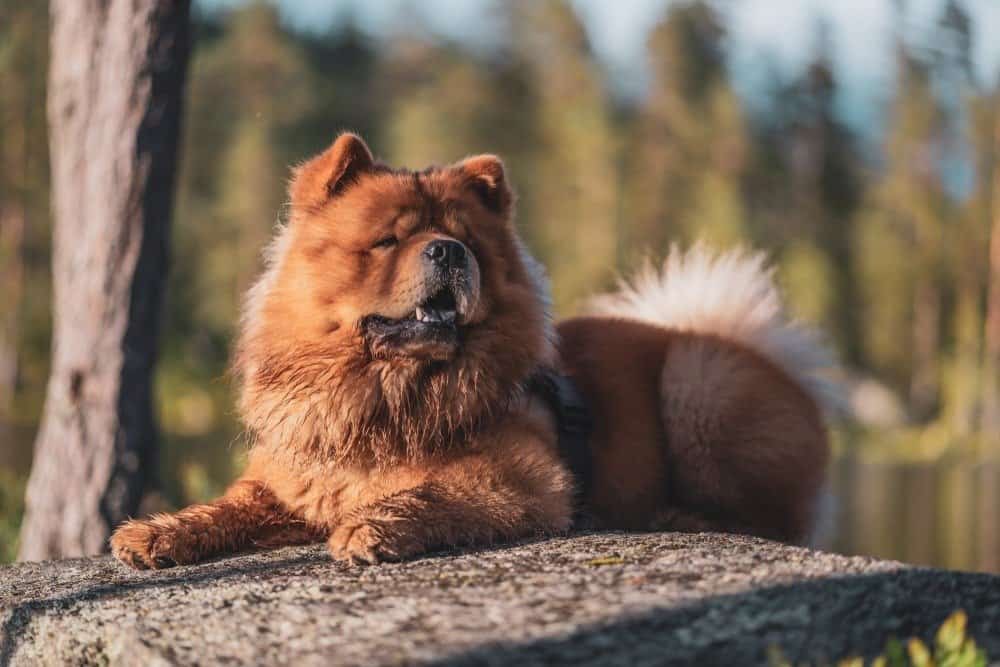
It’s important to socialize and train your Chow Chow well.
©Arne J. Enggrav/Shutterstock.com
Chow Chows don’t require a “firm hand” or for you to be the alpha dog. They do require patient and kind leadership.
Those who use compulsion training, aversive training methods, or aversive tools promote fear in their dogs. They’re more likely to see aggressive behaviors in their dogs as a result.
Force-free training methods are the way to go for any dog, and especially for a Chow Chow! A large part of training with some Chows is managing their environment to get the behaviors you want.
For instance, you might need to keep them away from other dogs by only letting them outside on a leash or in a securely fenced yard.
#7: Chow Chows Shed Heavily
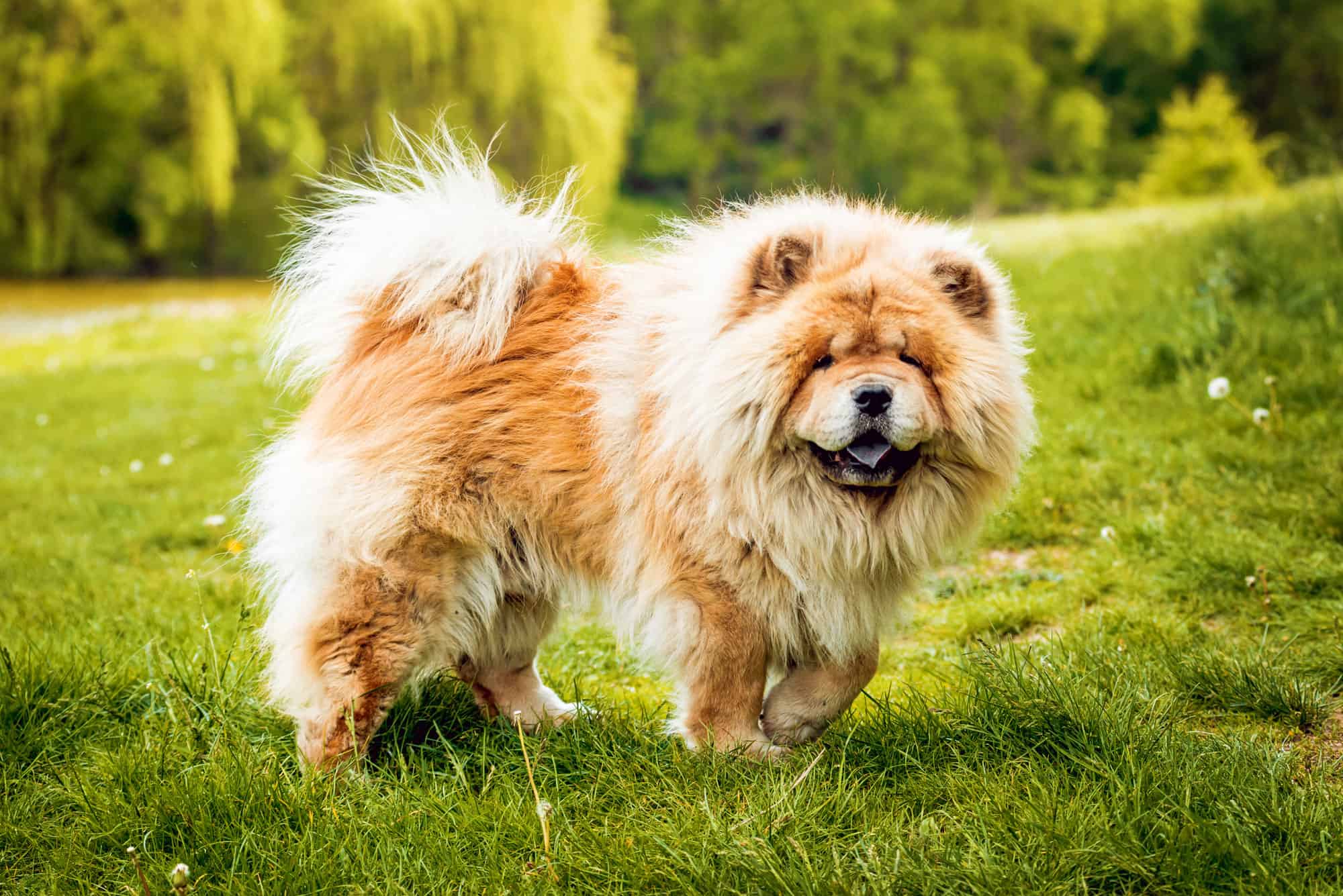
Their fluffy coats will shed a ton of loose fur around your house!
©Roman Zaiets/Shutterstock.com
This breed is known for ample shedding. You’ll want to invest in a good vacuum cleaner and perhaps a reusable lint roller to keep your home and clothes clean.
Brushing them regularly will reduce the amount of fur you find around the house, but won’t eliminate it. You’ll likely notice even more loose fur during shedding season in the spring and fall.
#8: They Require Regular Grooming
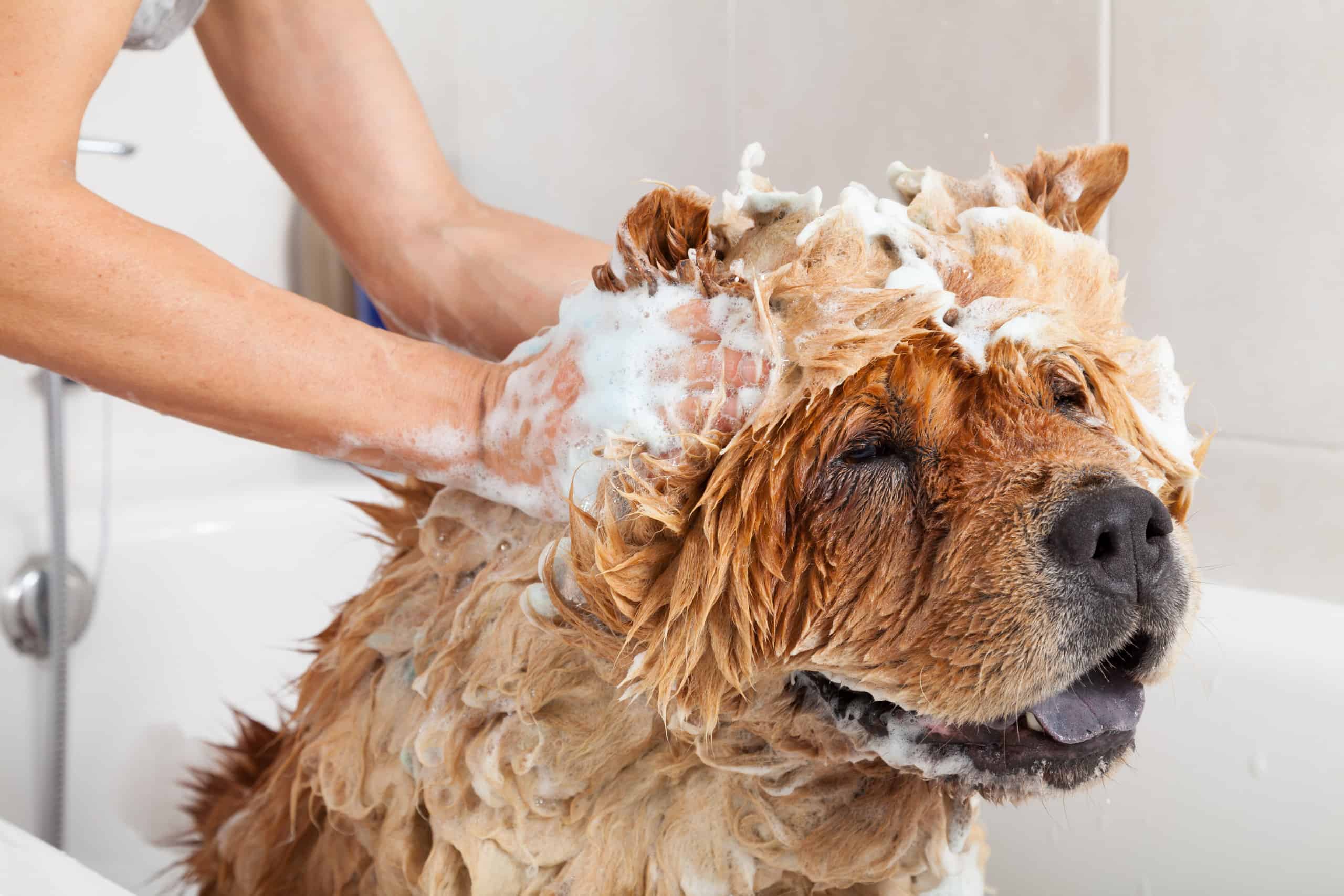
They need regular grooming to keep their coats healthy and free of mats.
©iStock.com/fotoedu
You’ll need to brush your Chow Chow at least twice a week and more often during shedding season. The most important thing is to brush or comb everywhere, down to the skin, to prevent matting.
Matted fur is incredibly painful for a dog, and can even cause skin infections, bruising, and other health issues if left too long.
Unfortunately, shaving a Chow Chow isn’t a good solution to make grooming easier, as this damages their double coat–which helps them to maintain their body temperature, protects them from the sun, and more.
#9: They’re Often Banned
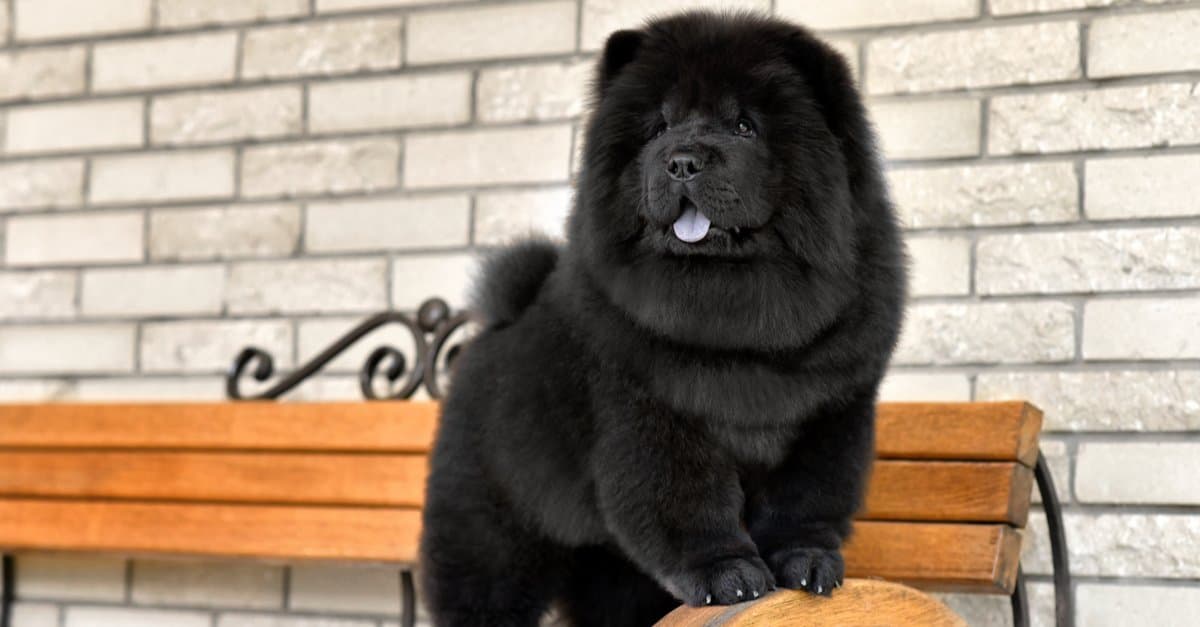
It can be difficult to find a place to rent or reasonably-priced home insurance when you have a Chow Chow.
©Natalia Fesiun/Shutterstock.com
If your city, your building, or your insurance has a banned breeds list, Chow Chows might be on it. Make sure you’re allowed to adopt a Chow Chow before you bring one home.
While it’s unfortunate that some breeds are discriminated against in this way, it’s not a good idea to try to hide your new puppy. The results can be heartbreaking for you and the dog!
Similar breeds that usually aren’t banned include Pomeranians and Samoyeds. These may be good options for you, or you might decide to wait until you live someplace that allows Chow Chows.
#10: Chow Chows are Prone to Health Problems
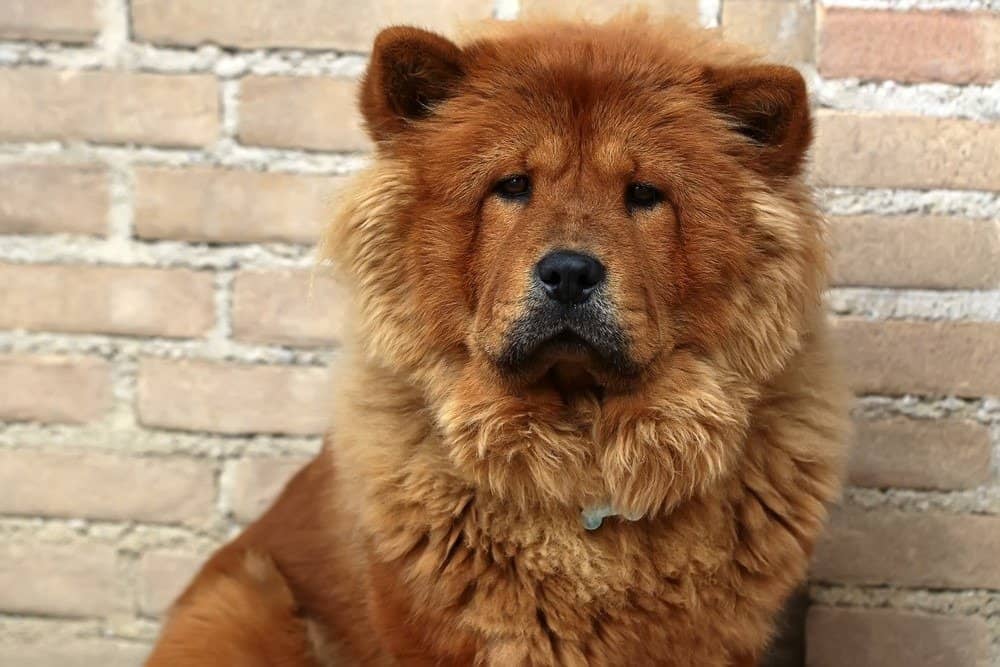
Chow Chows are prone to health conditions such as hip dysplasia.
©Volodymyr TVERDOKHLIB/Shutterstock.com
Like every breed, Chow Chows are prone to genetic health problems. Some common health issues in Chow Chows include:
- Hip and elbow dysplasia
- Eye conditions
- Luxating patella
- Heart disease
- Thyroid disease
The way these dogs are bred can also cause skin issues, breathing difficulties, and other respiratory problems linked to their short snouts.
Always opt for breeders who complete recommended OFA health testing and only breed healthy dogs, or from a reputable shelter or rescue organization.
It’s also important to purchase pet insurance when you bring your puppy home or to save for emergencies beforehand. You never know when your Chow Chow might get sick or injured, and vet care is expensive!
The photo featured at the top of this post is © dezy/Shutterstock.com
Ready to discover the top 10 cutest dog breeds in the entire world?
How about the fastest dogs, the largest dogs and those that are -- quite frankly -- just the kindest dogs on the planet? Each day, AZ Animals sends out lists just like this to our thousands of email subscribers. And the best part? It's FREE. Join today by entering your email below.
Thank you for reading! Have some feedback for us? Contact the AZ Animals editorial team.






